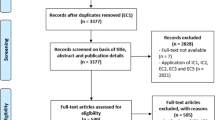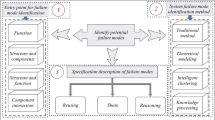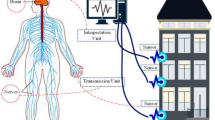Abstract
The reliability of the Controller Area Network(CAN) is critical to the performance and safety of the system. However, direct bus-off time assessment tools are lacking in practice due to inaccessibility of the node information and the complexity of the node interactions upon errors. In order to measure the mean time to bus-off(MTTB) of all the nodes, a novel data driven node bus-off time assessment method for CAN network is proposed by directly using network error information. First, the corresponding network error event sequence for each node is constructed using multiple-layer network error information. Then, the generalized zero inflated Poisson process(GZIP) model is established for each node based on the error event sequence. Finally, the stochastic model is constructed to predict the MTTB of the node. The accelerated case studies with different error injection rates are conducted on a laboratory network to demonstrate the proposed method, where the network errors are generated by a computer controlled error injection system. Experiment results show that the MTTB of nodes predicted by the proposed method agree well with observations in the case studies. The proposed data driven node time to bus-off assessment method for CAN networks can successfully predict the MTTB of nodes by directly using network error event data.
Similar content being viewed by others
References
YANG Z, KAN Y, CHEN F, et al. Bayesian reliability modeling and assessment solution for NC machine tools under small-sample data[J]. Chinese Journal of Mechanical Engineering, 2015, 28(6): 1229–1239.
WANG Y, ZHANG F, CUI T, et al. Fault diagnosis for manifold absolute pressure sensor(MAP) of diesel engine based on Elman neural network observer[J]. Chinese Journal of Mechanical Engineering, 2016, 29(2): 386–395.
GAUJAL B, NAVET N. Fault confinement mechanisms on CAN: analysis and improvements[J]. IEEE Transactions on Vehicular Technology, 2005, 54(3): 1103–1113.
CHEN J, LUO F, SUN Z. Reliability analysis of CAN nodes under electromagnetic interference[C]//IEEE International Conference on Vehicular Electronics and Safety, Beijing, China, Dec 13–15, 2006: 367–371.
LEI Y, DJURDJANOVIC D, NI J. DeviceNet reliability assessment using physical and data link layer parameters[J]. Quality and Reliability Engineering International, 2010, 26(7): 703–715.
CAUFFRIEZ L, CONRARD B, THIRIET J M, et al. Fieldbuses and their influence on dependability[C]//IEEE IMTC 2003 Instrumentation and Measurement Technology Conference. VAIL, CO, United States, May 20–22, 2003, 2: 1005–1008.
JUMEL F, THIRIET J M, AUBRY J F, et al. Toward an Information-Based Approach for the Dependability Evaluation of Distributed Control Systems[C]//IEEE Instrumentation and Measurement Technology Conference, VAIL, CO, United States, May 20–22, 2003, 1: 270–275.
CORNO F, PEREZ J, RAMASSO M, et al. Validation of the dependability of CAN-based networked systems[C]//Proceedings of the Ninth IEEE International High-Level Design Validation and Test Workshop, Sonoma Valley, CA, USA, Nov 10–12, 2004: 161–164.
HANSSON H A, NOLTE T, NORSTRÖ M C, et al. Integrating reliability and timing analysis of CAN-based systems[J]. IEEE Transactions on Industrial Electronics, 2002, 49(6): 1240–1250.
GUJARATI A, AGGARWAL A, CLEMENT A, et al. Probably Right, Probably on Time: An Analysis of CAN in the Presence of Host and Network Faults [C]//21st IEEE Real-Time and Embedded Technology and Applications Symposium, Seattle, USA, April 13–17, 2015: 9–10.
TRAN E, KOOPMAN P. Multi-bit error vulnerabilities in the controller area network protocol[M] Pittsburgh: Carnegie Mellon University Press, 1999.
RODRÍGUEZ-NAVAS G, JIMENEZ J, PROENZA J. An architecture for physical injection of complex fault scenarios in CAN networks[C]//IEEE Conference on Emerging Technologies and Factory Automation, Lisbon, Portugal, Sep 16–19, 2003, 2: 125–128.
REORDA M S, VIOLANTE M. On-line analysis and perturbation of CAN networks[C]//19th IEEE International Symposium on Defect and Fault Tolerance in VLSI Systems, Cannes, France, Oct 10–13, 2004: 424–432.
SHORT M, SHEIKH I, ALEY S, et al. Bandwidth-efficient burst error tolerance in TDMA-based CAN networks[C]//IEEE 16th Conference on Emerging Technologies & Factory Automation, Toulouse, France, Sep 5–9, 2011: 1–8.
CHEN H, TIAN J. Research on the controller area network[C]//IEEE International Conference on Networking and Digital Society, Guiyang, China, May 30–31, 2009, 2: 251–254.
CENA G, BERTOLOTTI I C, HU T, et al. Software-based assessment of the synchronization and error handling behavior of a real CAN controller[C]//IEEE 18th Conference on Emerging Technologies & Factory Automation, Cagliari, Italy, Sep 10–13, 2013: 1–9.
BARRANCO M, PROENZA J, RODRÍ GUEZ-NAVAS G, et al. An active star topology for improving fault confinement in CAN networks[J]. IEEE Transactions on Industrial Informatics, 2006, 2(2): 78–85.
YARAMASU A, CAO Y, LIU G, et al. Intermittent wiring fault detection and diagnosis for SSPC based aircraft power distribution system[C]//IEEE/ASME International Conference on Advanced Intelligent Mechatronics, Kaohsiung, Taiwan, China, Jul 11–14, 2012: 1117–1122.
BARRANCO M, PROENZA J. Towards understanding the sensitivity of the reliability achievable by simplex and replicated star topologies in CAN[C]//IEEE 16th Conference on Emerging Technologies & Factory Automation, Toulouse, France, Sep 5–9, 2011: 1–4.
BARRANCO M, PROENZA J, ALMEIDA L. Quantitative comparison of the error-containment capabilities of a bus and a star topology in CAN networks[J]. IEEE Transactions on Industrial Electronics, 2011, 58(3): 802–813.
PRODANOV W, VALLE M, BUZAS R. A controller area network bus transceiver behavioral model for network design and simulation[J]. IEEE Transactions on Industrial Electronics, 2009, 56(9): 3762–3771.
ZHAO J, LEI Y. Modeling for early fault detection of intermittent connections on controller area networks[C]//IEEE/ASME International Conference on Advanced Intelligent Mechatronics, Kaohsiung, Taiwan, China, Jul 11–14, 2012: 1135–1140.
LEI Y, YUAN Y, ZHAO J. Model-based detection and monitoring of the intermittent connections for CAN networks[J]. IEEE Transactions on Industrial Electronics, 2014, 61(6): 2912–2921.
LEI Y, YUAN Y, SUN Y. Fault location identification for localized intermittent connection problems on CAN networks[J]. Chinese Journal of Mechanical Engineering, 2014, 27(5): 1038–1046.
FERREIRA J, OLIVEIRA A, FONSECA P, et al. An experiment to assess bit error rate in CAN[C]//Proceedings of 3rd International Workshop of Real-Time Networks (RTN2004), Catania, Italy, Jun 29, 2004: 15–18.
LEI Y, DJURDJANOVIC D. Diagnosis of intermittent connections for DeviceNet[J]. Chinese Journal of Mechanical Engineering, 2010, 23(5): 606–612.
CHEN N, ZHOU S, CHANG T S, et al. Attribute control charts using generalized zero-inflated Poisson distribution[J]. Quality and Reliability Engineering International, 2008, 24(7): 793–806.
Author information
Authors and Affiliations
Corresponding author
Additional information
Supported by National Natural Science Foundation of China(Grant No. 51475422), Science Fund for Creative Research Groups of National Natural Science Foundation of China(Grant No. 51521064), National Basic Research Program of China(973 Program, Grant No. 2013CB-035405), and Open Foundation of State Key Laboratory of Automotive Safety and Energy, Tsinghua University, China(Grant No. KF13011)
ZHANG Leiming, is currently a PhD candidate at State Key Laboratory of Fluid Power & Mechatronic Systems, Zhejiang University, China. He received his BS degree in mechanical engineering from Harbin Institute of Technology, China.
YUAN Yong, received his MS degree in mechanical engineering from Zhejiang University, China.
LEI Yong, born in 1976, is an associate professor at State Key Laboratory of Fluid Power & Mechatronic Systems, Zhejiang University, China. He received his BS degree in control science and engineering from Huazhong University of Science and Technology, China, his MS degree in manufacturing and automation from Tsinghua University, China, and his PhD degree in mechanical engineering from University of Michigan, Ann Arbor, USA. His research interests include monitoring and fault diagnosis of the networked automation systems, statistical quality control, and surgical robots.
Rights and permissions
About this article
Cite this article
Zhang, L., Yuan, Y. & Lei, Y. Data driven CAN node reliability assessment for manufacturing system. Chin. J. Mech. Eng. 30, 190–199 (2017). https://doi.org/10.3901/CJME.2016.1021.124
Received:
Revised:
Accepted:
Published:
Issue Date:
DOI: https://doi.org/10.3901/CJME.2016.1021.124




